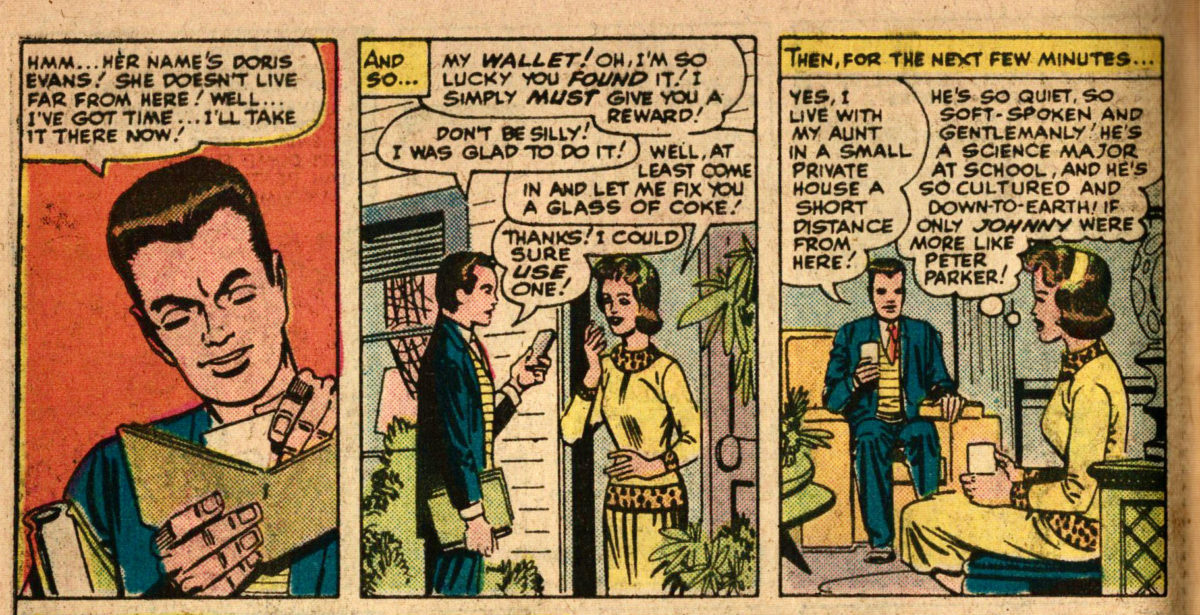Featuring: Iron Man
Release: June 8, 1965
Cover: September 1965
12 cents
Story by: Stan Lee, the idol of Millions!
Art by: Don Heck, the toast of two continents!
Inking by: V. Colletta, the pride of the bullpen!
Lettering by: Sam Rosen, the last angry letterer!
12 pages
| Previous | #404 | Next |
|---|---|---|
| X-Men #16 | Reading order | Tales of Suspense #69, Story B |
| Tales of Suspense #68, Story B | Tales of Suspense | Tales of Suspense #69, Story B |
But, Iron Man must accept the challenge! It’s a matter of national pride… of prestige!
There are many stories I consider iconic. And, usually, who knows how this impression forms. Decades of reading comics and talking about comics has given me a sense of some stories that stand out.
I think of this as an iconic story and I know exactly why I think that. Very early in my Marvel reading, I also collected Marvel cards. The 1990 set had a set of famous battles. This was one of the chosen battles.

We’ve seen one famous battle (per that card deck) before, the Hulk/Thing fight from Fantastic Four #25–26. And are currently in the middle of another, the “Nick Fury vs. Hydra” battle begun in Strange Tales #135.
Of course, Titanium Man has one other claim to fame. Paul McCartney selected him alongside Magneto as villains to write a song about. (He also references Crimson Dynamo.)
The MCP wants Iron Man to attend the wedding in the middle of the events of this issue. I don’t see why it can’t just be before this issue. Maybe I’m missing some subtlety. As the issue opens, he’s spent weeks working on this sub-miniature reverser. He could have taken a brief break to attend a wedding.
Continuity does get complicated here though. Avengers #20 is concurrent to Tales of Suspense #70. Avengers #19 takes place in the middle of the Hydra Saga, yet Tony Stark’s life gets complicated starting now, so issue 69 or before is the best chance for his appearances in Strange Tales, including his appearances after the Hydra saga. And of course Iron Man shares a comic with Cap. As Nick Fury does with Dr. Strange, the latter of which we are months behind on reading.
For a reading order, we’ll read the Iron Man/Cap stories, then the Avengers stories, then the Dr. Strange/Nick Fury stories. But we’ll talk about what must be concurrent and what must fit where as we go.

Titanium Man is the Soviet answer to Iron Man. He issues a public challenge to prove Soviet superiority. Titanium is more powerful than Iron, so his armor is more powerful, but also slower and bulkier.
Continue reading “Tales of Suspense #69”











































